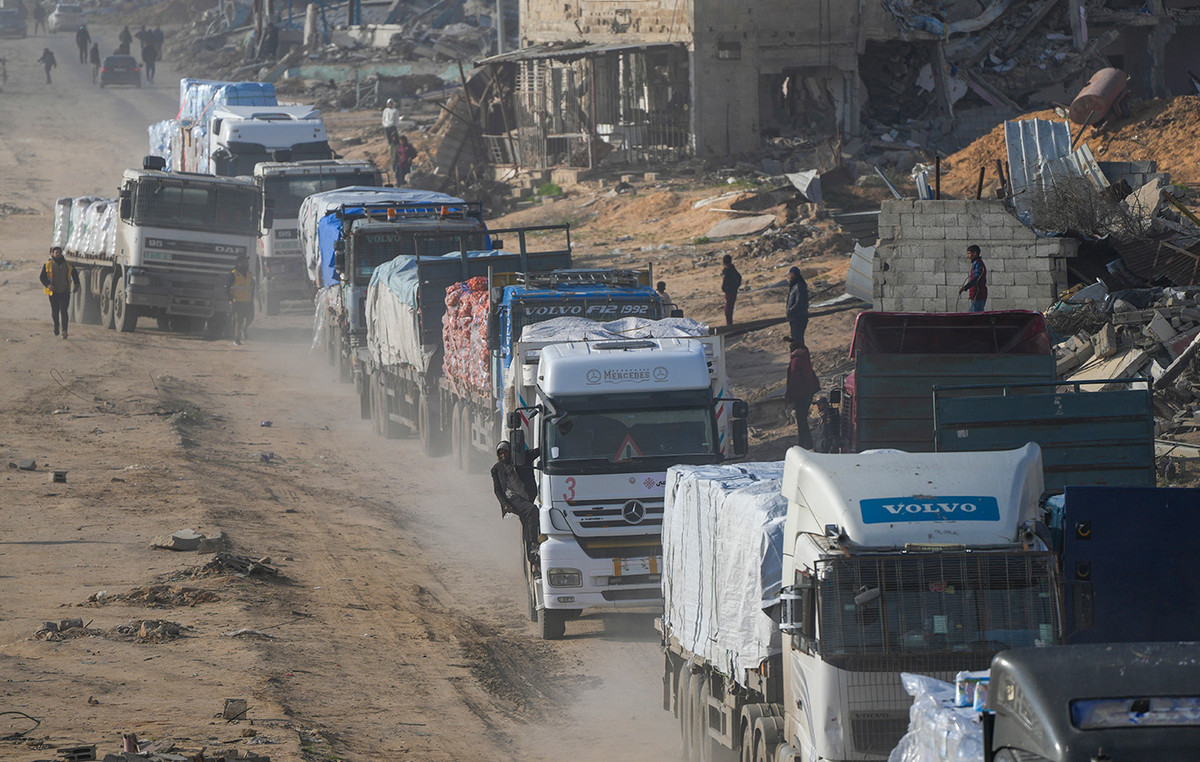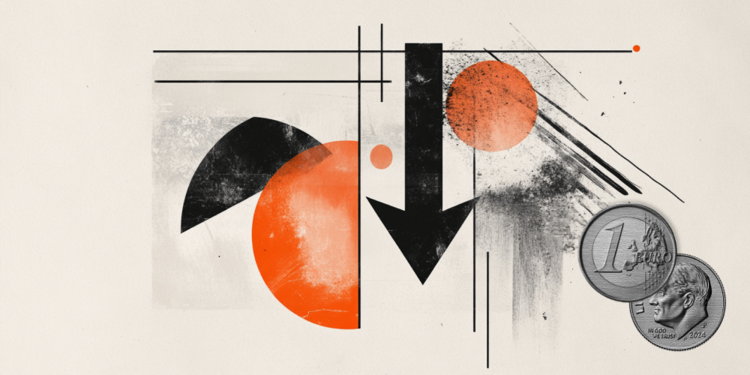About to debut its 25th edition, the Big Brother Brazil remains one of the biggest audience successes on Brazilian television. Produced by TV Globo since 2002, The program established itself as a reference in reality shows and still captures the public’s attention to this day.
But before conquering Brazilians, the format was already successful in other countries. Created by Dutch producer Endemol the The original Big Brother was launched in the Netherlands in 1999 quickly becoming one of the most influential reality shows in the world.
How did “Big Brother” come about?
Inspired by the book “1984”, by George Orwell, The concept of “Big Brother” was created by Dutch television producer John de Mol. In the dystopian novel, “Big Brother” is an authoritarian figure who monitors and controls society through constant surveillance.
This idea was adapted to entertainment: in the reality show, participants live in a house isolated from the outside world, watched by cameras 24 hours a day, while competing for a million-dollar prize.
Its first edition in the world was aired on September 16, 1999, on the Dutch channel Veronica TV. Since then, the format has been replicated in more than 50 countries including Germany, the United States, Spain, Australia and Portugal, among others.
In each country, Big Brother presents rules and dynamics adapted to the preferences of the local public, creating unique versions of the reality show, which often inspire each other to bring news and enrich the format.
International dynamics that influence the Brazilian format
With annual editions marked by constant innovations, over the years, the Big Brother Brazil it also incorporated ideas from foreign editions, such as new dynamics and even the exchange of participants.
Node BBB 24 for example, the “Sincerão” dynamic, which destroyed letters sent by family members, was inspired by a 2014 Big Brother Canada test. On that occasion, participant Ika Wong had to choose between destroying her colleagues’ letters or winning US $5,000 – and she opted for cash.
Another example happened in the 3rd edition of Big Brother Bulgaria, with triplets Vyara, Nadejda and Lyubov who pretended to be a single person. Two of them were hidden in a secret room while the third interacted with the participants. If they managed to fool everyone, the three of them would have the right to participate in the program. Finally, it worked and Lyubov was the great champion of the reality show.
Brazil also incorporated this idea, but in a different way: in BBB 6, the brothers Djair and Djairo participated in the Prova do Anjo and, by deceiving the others, took R$20,000. Then, on BBB 17, twins Amanda and Andressa tried something similar in Prova da Comida, but were discovered. On BBB 17, the twins Antônio and Manoel and Emily and Mayla entered the house to compete for a spot as a duo on the program. Emily was crowned champion of the edition.
The White Room dynamic, which consists of a completely white, windowless environment where participants are confined as part of a psychological test, was first introduced on Big Brother Australia 7, in 2007. The idea inspired the Brazilian edition, who adapted the format for BBB 9, BBB 20 and BBB 23, as a challenge for the participants, who had to test their limits inside.
Remember the exchanges that have already taken place at BBB
The exchange of participants with other international editions of Big Brother is also famous in the program’s history. In the dynamic, a participant from another reality show is invited to spend time at the BBB house, just as the Brazilian program has also sent some participants to represent the country in other reality shows around the world.
Furthermore, Big Brother Brasil has already had foreign participants in its regular cast since the first edition, such as Serginho (BBB 1), Antonela (BBB 4), Kaysar (BBB 18), and Tina (BBB 23).
Check here who are the foreigners who have already exchanged at BBB and which ex-BBBs have already gone to a reality show outside the country.
Exchange students who went through BBB:
- Pablo (BBB 7): In the final stretch of the edition, the house became busy with the sudden arrival of Argentinean Pablo Espósito. The first foreigner to appear on the Brazilian reality show, he was chosen to come to Brazil with 28.7% of the votes from the public of Gran Hermano, Argentina’s version of the reality show. On that occasion, he almost had an affair with Carolini, and made a statement by taking a shower without clothes on in the house during his stay.
- Ricco (BBB 9): winner of Big Brother Africa in 2008, Ricardo, better known as Ricco, spent four days on the program. Even with a short period of confinement, the Angolan still tried to win over Priscila Pires, but failed.
- Noemí (BBB 12): directly from Gran Hermano, the Spanish version of BBB, Noemí arrived in Brazil and visited the house at the beginning of the edition. Without competing for the prize, she stayed in the house for five days, and even had a romance with Fael, champion of the program.
- Elettra (BBB 17): Elettra, granddaughter of Ferruccio Lamborghini and heiress of the Lamborghini family, stayed at the house with the brothers for four days in 2017 and, afterwards, the Italian returned to Gran Hermano Spain and was full of praise for the Brazilian brothers.
- Alberto (BBB 19): the Italian Alberto Mezzetti, known as the “Italian Tarzan”, won Gran Fratello, the Italian version of the reality show, the previous year and spent around five days in the Brazilian house and enchanted everyone.
- Dania Mendez (BBB 23): participant of La Casa de Los Famosos 3, a Mexican version similar to the reality show, Dania was chosen to live with the brothers for a few days and contributed to the dynamics of forming the Paredão of the week. During their stay at the house, two participants were expelled from BBB for inappropriate behavior towards the visitor during a party.
Former BBBs who have already participated in the exchange:
- Iris Stefanelli (BBB 7): also known as Siri, the sister spent a week at Gran Hermano Argentina and won over the Argentine brothers.
- Laisa (BBB 12): On European soil, Laisa paid a visit to the Gran Hermano España participants. The gaúcha made the exchange after being eliminated from BBB, but unlike the other two brothers who also entered the reality show at the same time, she didn’t go to compete for the prize and only stayed for a week.
- Antônio and Manoel (BBB 17): the twins were chosen to participate in Gran Hermano Spain and had to deceive the participants by pretending to be the same person.
- Key Alves (BBB 23): After being the eighth eliminated from her edition of the BBB, athlete Key Alves was chosen by the production team for an exchange with the reality show La Casa de los Famosos 3, from Mexico, in an exchange with Dania.
This content was originally published in Understand how international editions of BBB influence Brazilian reality on the CNN Brasil website.
Source: CNN Brasil
I’m Robert Neff, a professional writer and editor. I specialize in the entertainment section, providing up-to-date coverage on the latest developments in film, television and music. My work has been featured on World Stock Market and other prominent publications.







